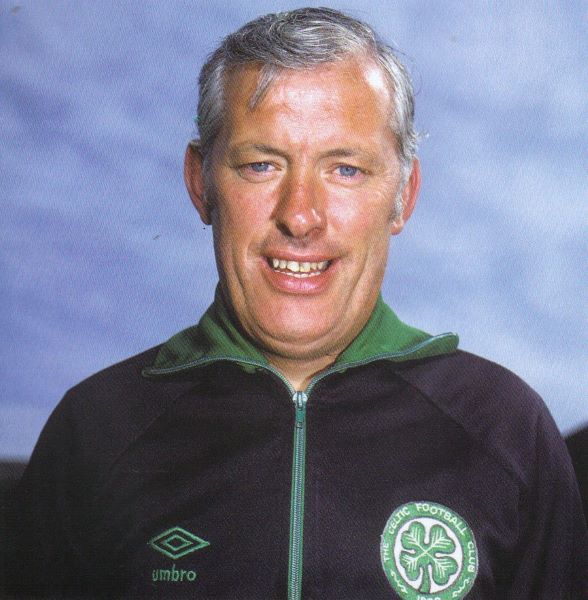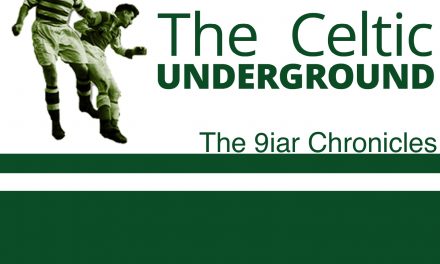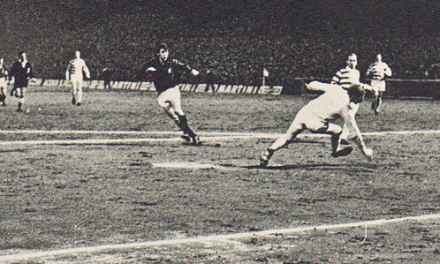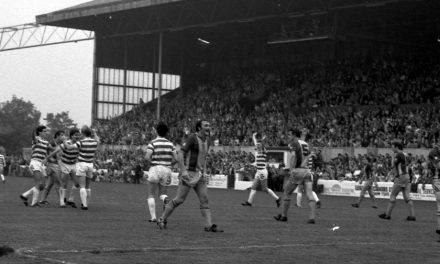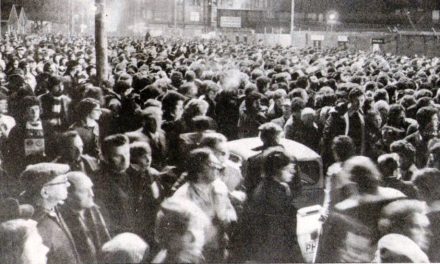Question: Name two men who have been employed by Celtic at four different times in their life in different capacities?
Answer: One is John Clark (player 1959-1971, reserve coach 1973-1977, assistant manager 1978-1983, kit man 1997 onwards). The other is Frank Connor.
Connor’s playing career at Celtic is not so well known. He played eight games in the 1961-1962 season before being handed a free transfer at the end of that campaign and it’s rather surprising to note that he stood five foot and eight inches, which is regarded as being a bit on the small side for a goalkeeper. This was a turbulent period in Celtic’s history and there was a high turnover of players at that time.
When John Clark left his role as Celtic’s reserve team manager in 1977 to become Billy McNeill’s assistant at Aberdeen, Frank Connor was Jock Stein’s surprise choice as the new reserve manager. He was to be highly regarded by all at Celtic Park for the three years that he performed in that role. Very much a Celtic man, Frank instilled in the hopeful youngsters the pride that every Celtic player should have in wearing that renowned green and white jersey. He was also said to be good when dealing with the first team players who may have been out of form or returning from injury and who may have been looking to have their confidence boosted.
As with most things it took Frank a while to stamp his own authority on his young charges. There was one particularly bad result in 1978 when Celtic lost 7-0 at Ibrox although in fairness it has to be said that Rangers played a hugely experienced team in comparison to Celtic’s young eleven. However, by 1979 things began to take shape and Frank had formed a terrific young side which played the traditional Celtic way of attacking football. The young Celts won the reserve double of league and cup in 1980, which was a notable achievement given the wealth of young talent on display within Scottish football at that time. From memory, the cup was a two legged affair and after losing 5-1 at Love Street the young Celts roared back to win 5-0 against St Mirren at Parkhead. A couple of drubbings were also dished out to Rangers as retribution for the heavy Ibrox defeat in 1978.
The reserves showed their success was no fluke by winning another double the next season. However, the main priority of any reserve side is not to win trophies but to develop young players for first team action and Frank was able to provide Billy McNeill with an array of young talent. In the early 1980’s Frank helped to develop three particular young talents who were amongst the best in British football in their respective positions for the next decade – Charlie Nicholas, Pat Bonner and Paul McStay. There were others who made significant contributions to the Celtic cause such as Mark Reid, Willie McStay, Danny Crainie and Davie Moyes. And others again who moved on to have fine careers in the game like Jim Duffy, Peter Mackie, Jim McInally, John Weir and John Halpin. The side which Frank put together were unbeaten in reserve league football for almost two years, a highly notable achievement at that level.
Every one of those boys was to speak highly of Frank Connor in later years and pay tribute to how he developed them not only as footballers but also as men. By all accounts, Frank was a motivator who put his side on the field fired up and proud to be playing in those famous green and white hoops but also a man who insisted that the boys enjoy their football and be appreciative of the highly fortunate position they found themselves in as professional footballers.
Frank’s success did not go unnoticed and there was much sadness when he left his reserve role in late 1980 to become manager at Berwick Rangers. It was rather ironic that Celtic drew Berwick in the Scottish Cup a matter of weeks later at Shielfield Park with a young Charlie Nicholas putting his old mentor’s side to the sword.
By 1983 Frank Connor was assistant manager to Jock Wallace at Motherwell. The Fir Park club had spent big to lure Wallace back north from his spell as Leicester City manager and he had done reasonably well in his first season. Over at Parkhead, Billy McNeill had departed for Manchester City in highly acrimonious circumstances and as Celtic contemplated the manager’s position, Chairman Desmond White announced Frank as Celtic’s new assistant manager before the actual manager had even been appointed. Davie Hay was named as manager within a few days but it was clear that Frank was not Davie’s choice and it was regarded as a strange for a new manager not to choose his own backroom staff. It was to Wallace’s great credit that, well knowing Frank’s allegiances to Celtic, that he did not stand in the way of his move to Parkhead.
Initially things went reasonably well under very difficult circumstances. Aberdeen and Dundee United were in their pomp under Alex Ferguson and Jim McLean, with Rangers very much on the margins. After a trophy less first season, Celtic won the Scottish Cup in memorable fashion against Dundee United and the Celts then looked to carry that forward into the next season.
In February 1986 Celtic were in contention for the league title and had enjoyed a fine 3-1 win at Dens Park on a day when they could even afford the luxury of a missed Paul McStay penalty. Immediately after this game Davie Hay dismissed Frank from his assistant’s role citing footballing differences as the reason. This was a huge shock to everyone connected with the club as there had been no rumours of any unrest behind the scenes. It’s interesting to note that Hay then went it alone until the end of the season without appointing a replacement.
Many may have thought that that was the end of the line between Frank Connor and Celtic but he was to return to Parkhead in yet another capacity in 1993. Liam Brady was struggling as Celtic manager and his last throw of the dice was to change his coaching staff with Joe Jordan coming in as assistant manager and Connor as first team coach. Sadly for Brady, things did not improve and he resigned in October 1993 after a dismal defeat to St Johnstone at McDiarmid Park. Jordan also resigned shortly after and the Celtic directors appointed Connor as interim manager whilst they attempted to procure a new manager.
Frank’s first game in charge was against Dundee at Parkhead on a day of horrid weather. It all looked too predictable when Dundee took the lead however Celtic fought back to win 2-1. The most encouraging thing about the victory that day had been the fighting spirit which had been so absent during Brady’s time and had been missing at Parkhead for some time.
A 1-1 draw at Easter Road was followed by a 1-0 first leg win over an impressive Sporting Lisbon side in the UEFA cup. The Portuguese side looked a class act that night, although Frank was able to boast that he had tactically got one over Sporting’s manager, the great Bobby Robson.
Lou Macari was then appointed as Celtic’s new manager in a fanfare of publicity approaching the Ibrox contest between Celtic and Rangers in late October. Macari publicly admitted that he knew very little of the Celtic players and asked Frank Connor to pick the team on view of this. Celtic were huge under dogs before the match but the old fighting spirit was again in evidence as they fought back from 0-1 down to win 2-1 courtesy of a dramatic injury time winner from Brian O’Neil. Thus, Frank’s short tenure as Celtic manager had resulted in an impressive three wins and a draw.
Macari was the old Celtic board’s last gamble and it was not to pay off. By May 1994 he would be unceremoniously shown the exit door by new Celtic owner, Fergus McCann. It’s easy to be wise with hindsight but the feeling is that the board should have kept Frank as manager even until the end of the season. The fans had faith in him and the players publicly stated that he commanded their respect so Celtic would not have much to lose. As it was Frank was marginalised by Macari who brought his own coaching staff from Stoke City and by the end of that season Frank had left Celtic once more.
Frank Connor’s name may not be as illustrious as some in Celtic’s history but in four different roles and in four different decades he served Celtic magnificently. And for that he will be remembered with great affection.

